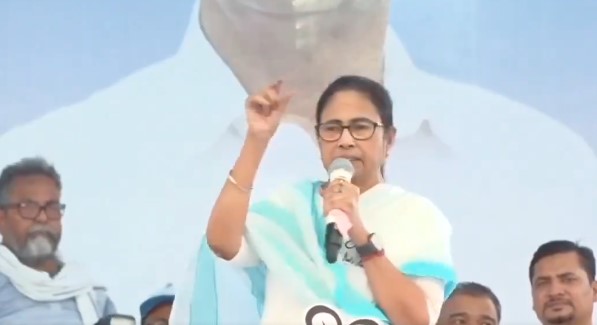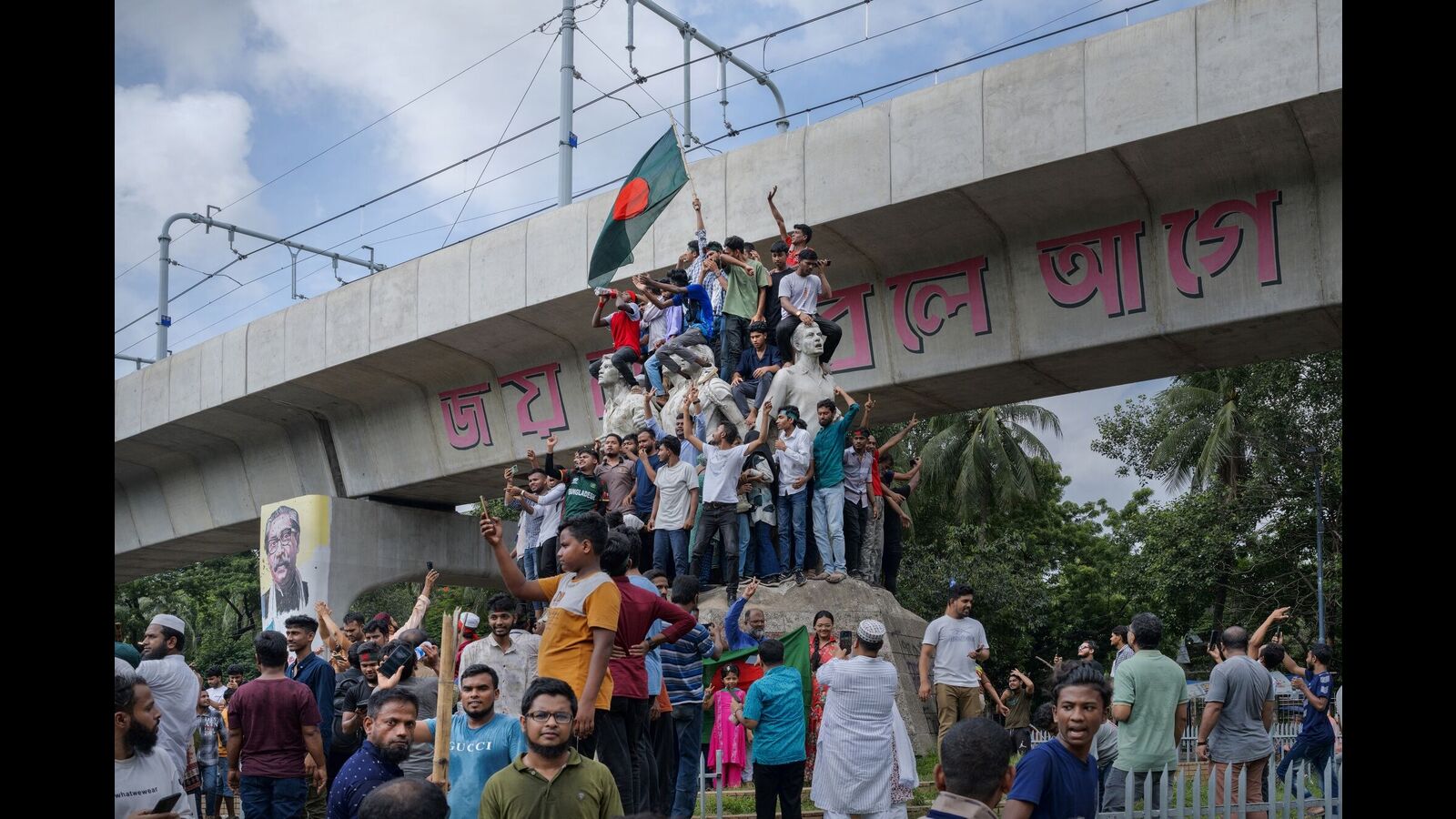
Lessons from Hasina’s debacle
Hindustan TimesThe end came swiftly. Five decades years after her father, the founder of Bangladesh, Sheikh Mujibur Rahman, was assassinated in his own home, the curtain fell on Sheikh Hasina’s uninterrupted but controversial 15-year-long rule over Bangladesh. The immediate trigger for the stir may have been a lopsided reservation policy that set aside a third of government jobs for descendants of freedom fighters — a contested category with ample room for corruption — but anger was building over an election widely seen as a sham, the subversion of the democratic process, sweeping suppression of dissent and crippling anxiety among young people over quality jobs and the possibility that they might lead a life worse than the previous generation. The 76-year-old leader had deep ties with India and was considered New Delhi’s staunchest friend even as she tried to strike a balance with China. Bangladesh’s street uprising – among the first such political action by Gen Z anywhere — was presaged by years of slow erosion of civil liberties, accompanied by sputtering growth amid a downturn in every sector except exports.
History of this topic
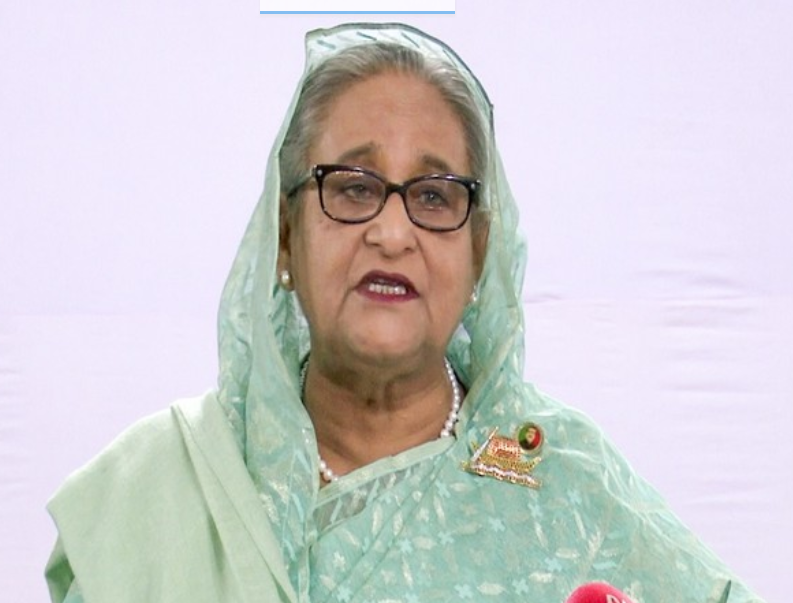
Bangladesh sends note verbale asking India to send back deposed PM Hasina
Deccan Chronicle
Bangladesh tells India it wants ex-PM Hasina back for ‘judicial process’
Al Jazeera
India lodges protest over comments by Muhammad Yunus's aide
India Today
Dhaka 2.0: Sheikh Hasina fading history, city finds hope in new uncertainty
India Today
Opinion - India is losing Bangladesh to China and Pakistan, and it could get worse
India TodayDemocracies across the globe are at a crossroads, as authoritarians seek to chip away at freedoms
Associated Press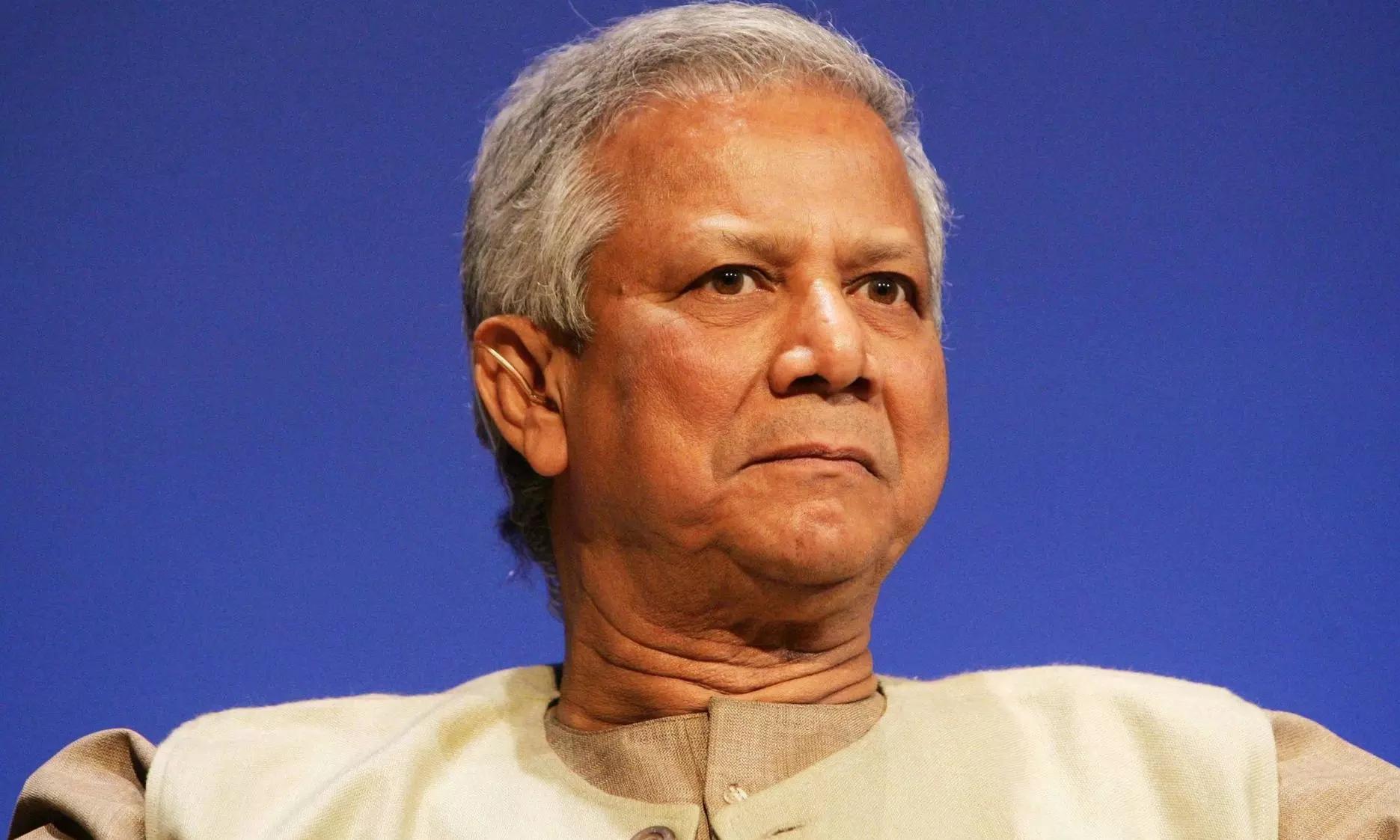
Bangladesh to hold elections in late 2025 or early 2026: Yunus
Deccan Chronicle
Bangladesh to hold elections in late 2025 or early 2026, says Muhammad Yunus
India Today
Bangladesh’s ex-PM launches attack on interim govt, calls Yunus a ‘fascist’
Hindustan Times
Ousted PM Sheikh Hasina involved in enforced disappearance: Bangladesh commission
New Indian Express
Ousted PM Sheikh Hasina involved in enforced disappearance: Bangladesh commission
ABP News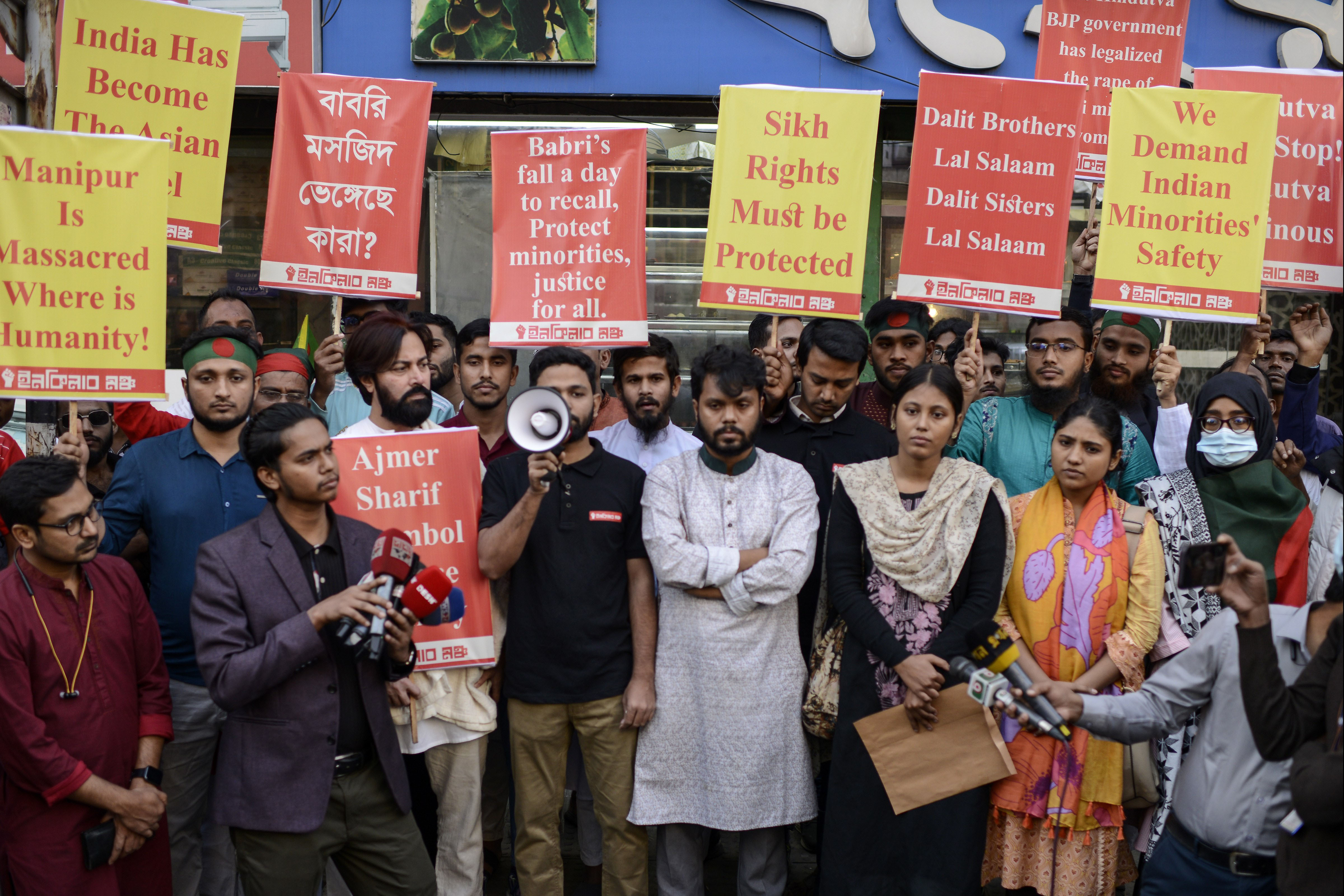
DC Edit | Dhaka needs to act swiftly, firmly to restore normalcy
Deccan Chronicle
Sheikh Hasina is the legal PM: Suvendu Adhikari slams Yunus-led Bangladesh regime
India Today
Sheikh Hasina slams Yunus over Hindu priest Chinmoy Das’ arrest; calls him ‘mastermind of July-August unrest’
Live Mint
Sheikh Hasina slams Yunus-led government as 'fascist'; calls him 'mastermind' behind protests
New Indian Express
Bangladesh to replace Sheikh Mujibur Rahman’s image with ‘graffiti’ on banknotes
Live Mint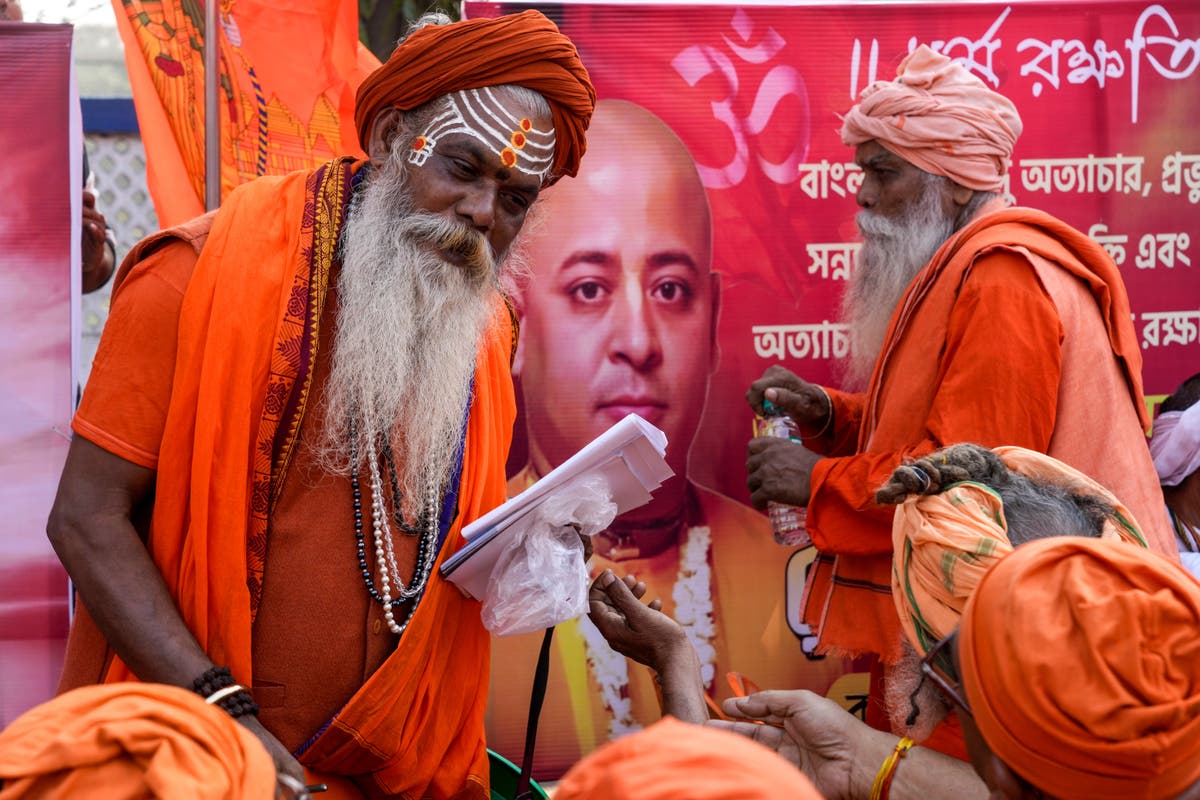
Bangladesh court bans publication of speeches by ousted Prime Minister Hasina
The Independent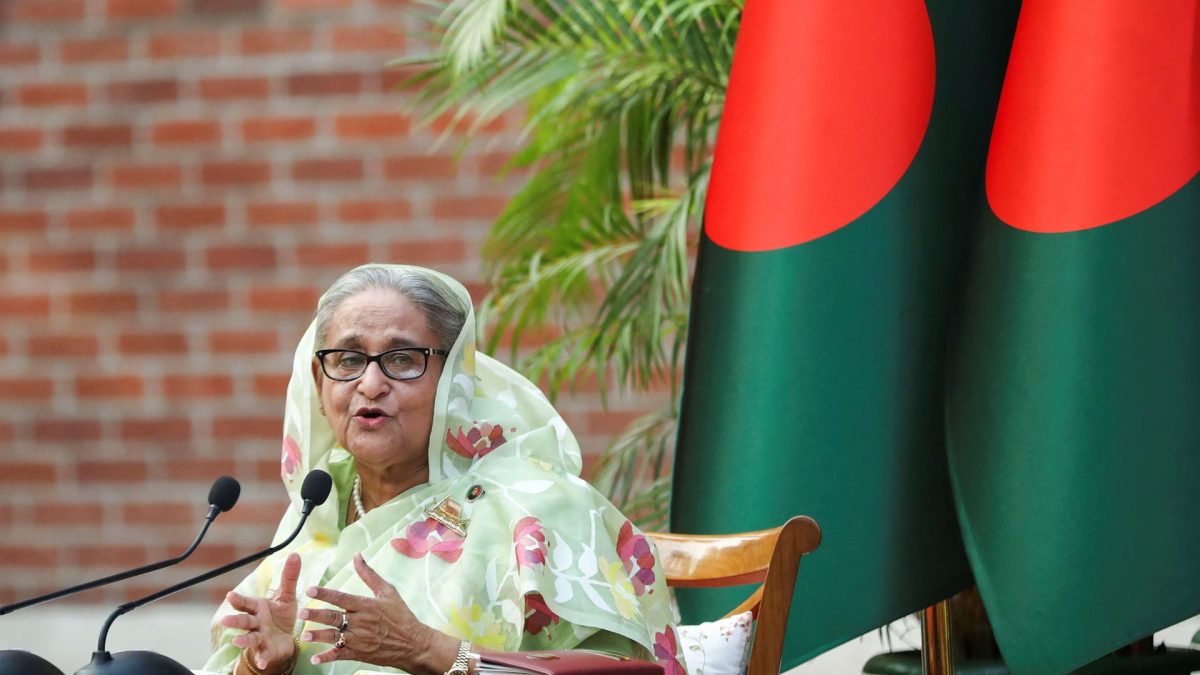)
Bangladesh bans broadcast of Hasina's first public address since ouster, calls it 'hate speech'
Firstpost
Bangladesh court bans broadcasts of ousted ex-PM's hate speech
Deccan Chronicle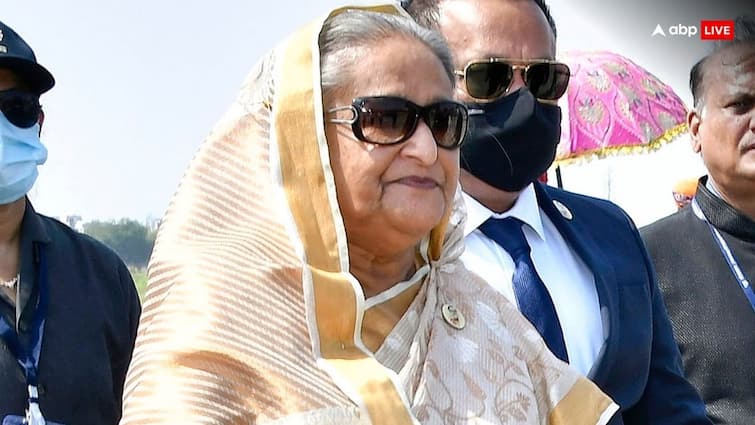
Sheikha Hasina Blasts Yunus In 1st Public Address After Fleeing Bangladesh, Accuses Him Of Genocide
ABP News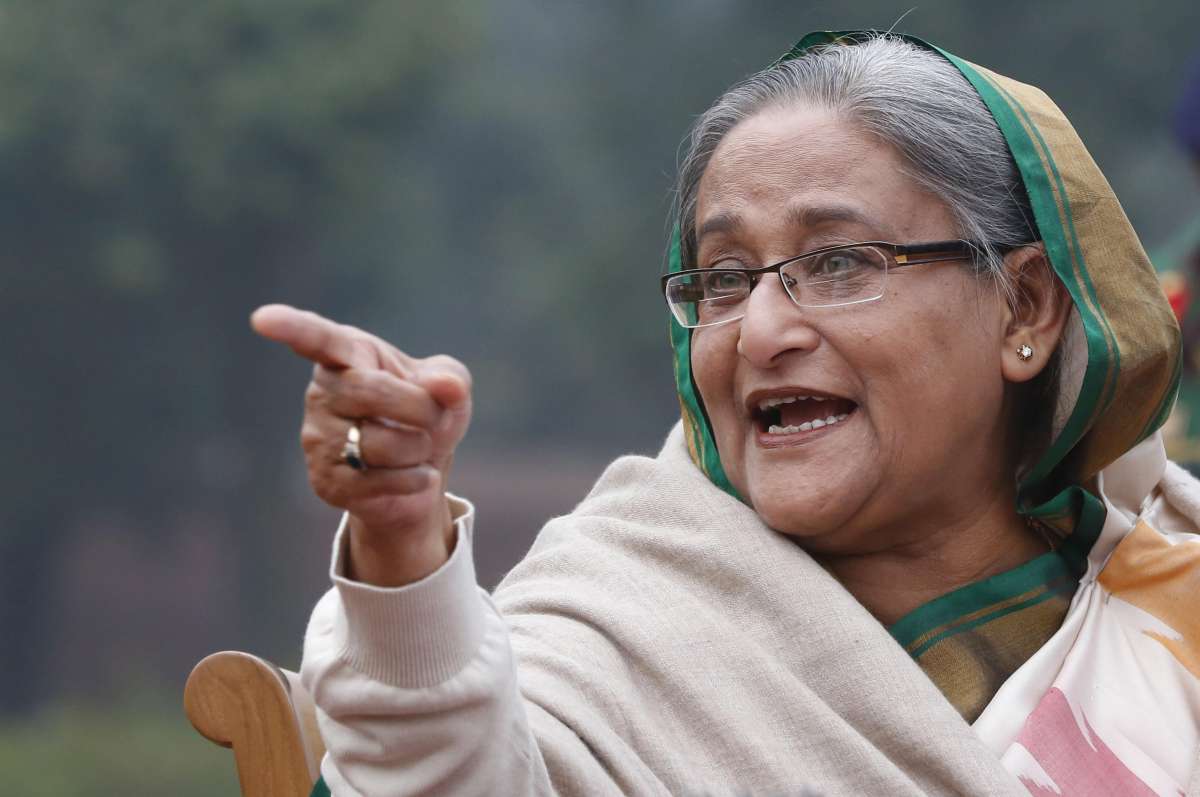
'Power hungry' Muhammad Yunus is perpetrating 'genocide' in Bangladesh: Sheikh Hasina in first public address
India TV News
Sheikh Hasina slams Muhammad Yunus in first public address since leaving Bangladesh: ‘mastermind of genocide’
Live Mint
Sheikh Hasina accuses Yunus of genocide, not protecting minorities in first public address
Hindustan Times.jpg?w=1200&ar=40%3A21&auto=format%2Ccompress&ogImage=true&mode=crop&enlarge=true&overlay=false&overlay_position=bottom&overlay_width=100)
Sheikh Hasina mounts stinging attack on Muhammad Yunus over Bangladesh 'genocide'
New Indian Express
Sheikh Hasina accuses Yunus of genocide, failing to protect Hindus in Bangladesh
India Today)
Muhammad Yunus, student coordinators 'masterminds of mass killings' in Bangladesh: Sheikh Hasina – Firstpost
Firstpost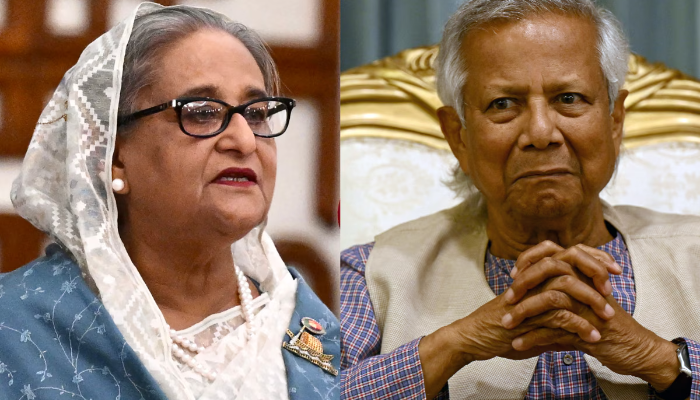
Muhammad Yunus mastermind of mass killings in Bangladesh: Sheikh Hasina
Op India
Sheikh Hasina calls Muhammad Yunus mastermind of mass killings in Bangladesh
India Today
How India lost Bangladesh to Pakistan and China
India Today
'Bangladesh Hindus weren't safe under Sheikh Hasina either'
India Today
Relations with India changed after Sheikh Hasina's ouster: Bangladesh foreign advisor
Hindustan Times)
How Muhammad Yunus-led interim government has failed Bangladesh
Firstpost
The communal turn in Dhaka
Hindustan Times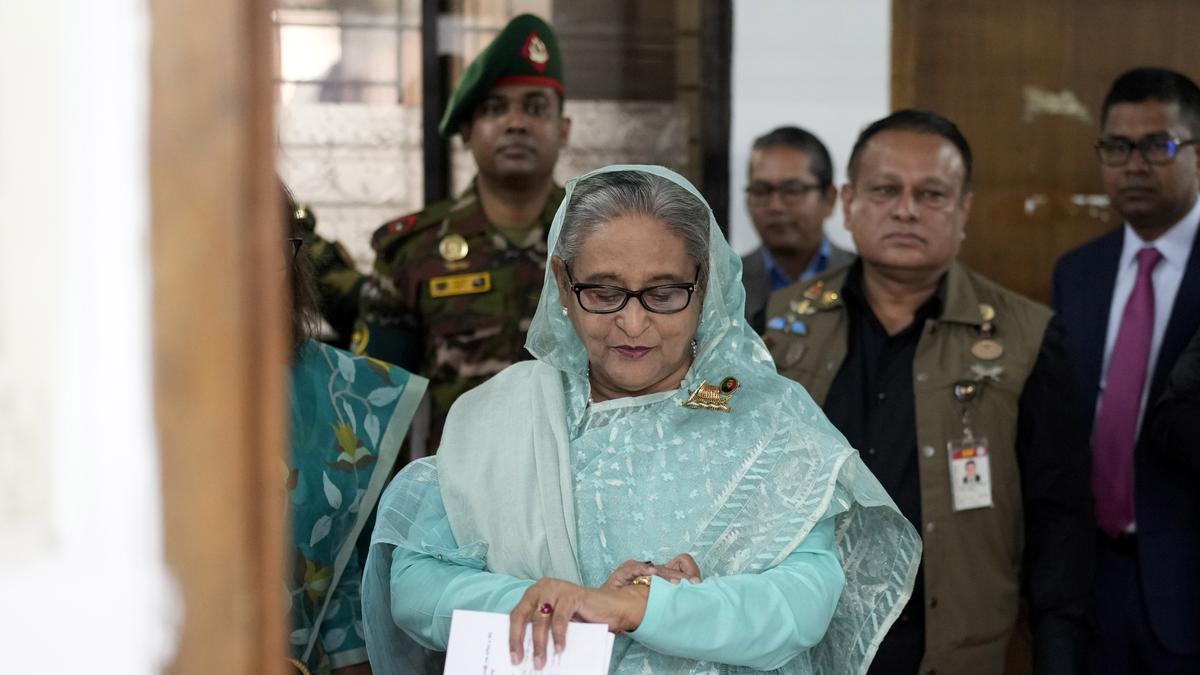
Bangladesh’s deposed PM Sheikh Hasina condemns arrest of Hindu spiritual leader, demands his release
The Hindu
Bangladesh's ousted PM Sheikh Hasina condemns arrest of Hindu spiritual leader, demands his release
Deccan Chronicle
Sheikh Hasina slams Hindu monk's arrest in Bangladesh: Anarchist activities
India Today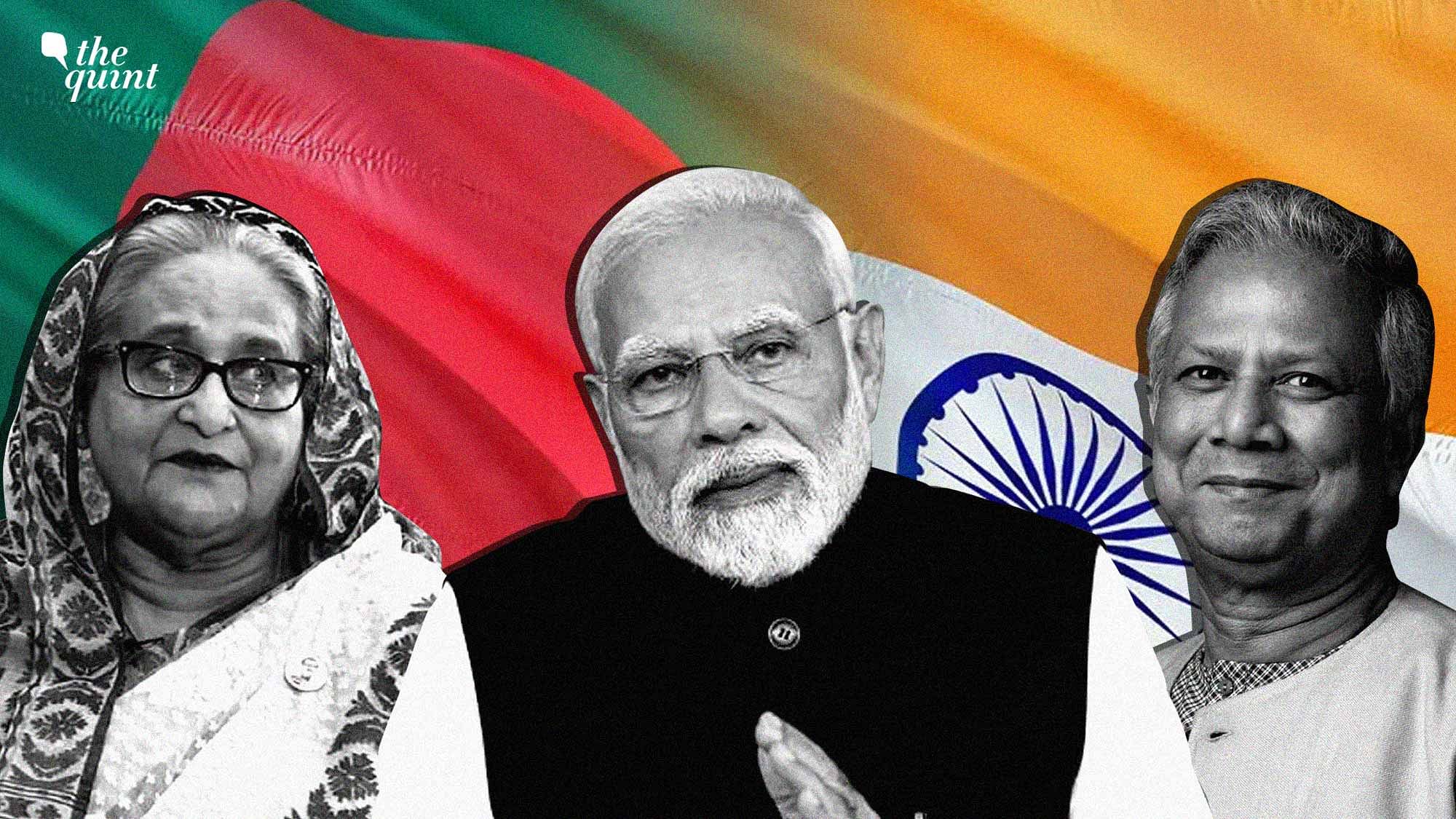
Bangladesh to Seek Sheikh Hasina's Extradition: Pros & Cons for Indian Govt
The Quint)
Will India extradite Sheikh Hasina if Bangladesh calls for it?
Firstpost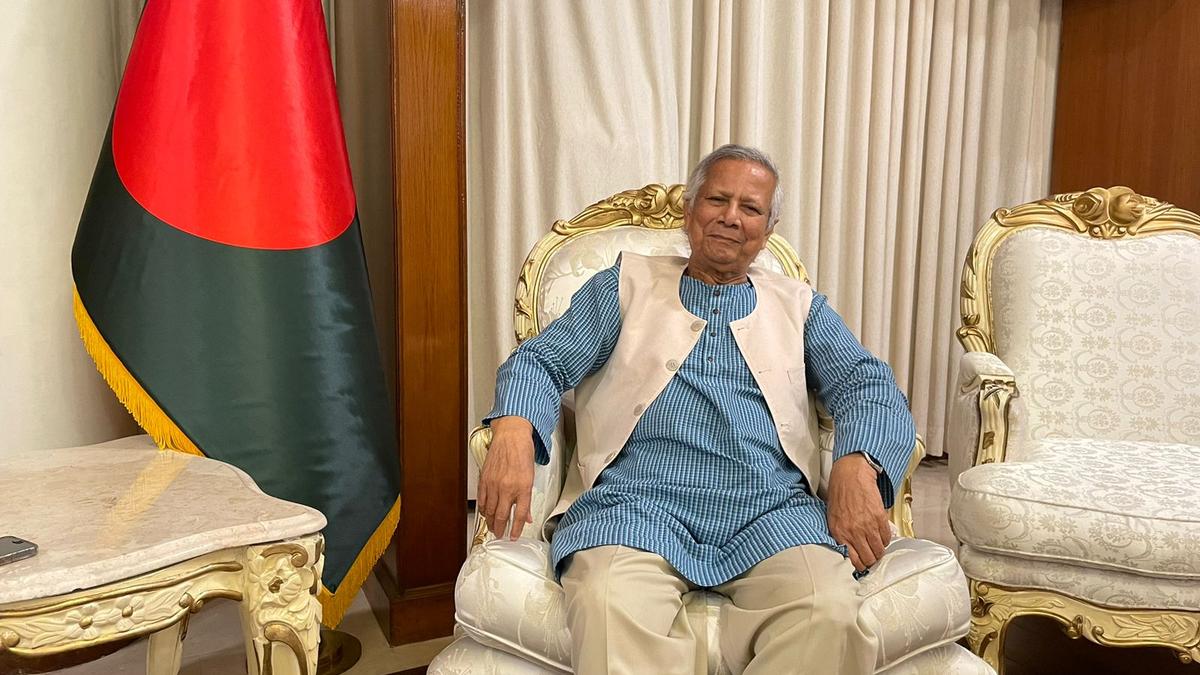
Hasina is continuing her political activities from India; Delhi must return her to face trial: Bangladesh Chief Advisor Yunus
The Hindu
‘Bangladesh to seek extradition of ousted Sheikh Hasina from India,’ says Muhammad Yunus
Live Mint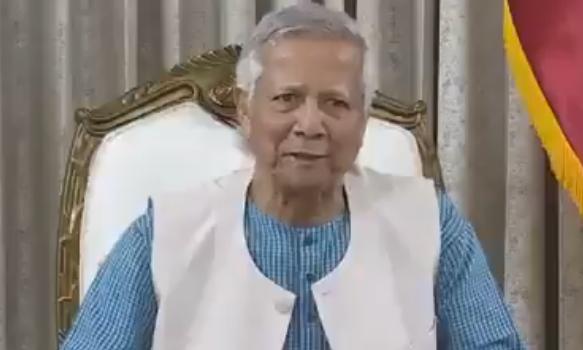
Bangladesh will Seek Extradition of Sheikh Hasina: Yunus
Deccan Chronicle)
Bangladesh will seek ex-premier Sheikh Hasina’s extradition from India, says Yunus
Firstpost
Bangladesh to seek Sheikh Hasina's extradition from India, says interim govt chief advisor Muhammad Yunus
Hindustan Times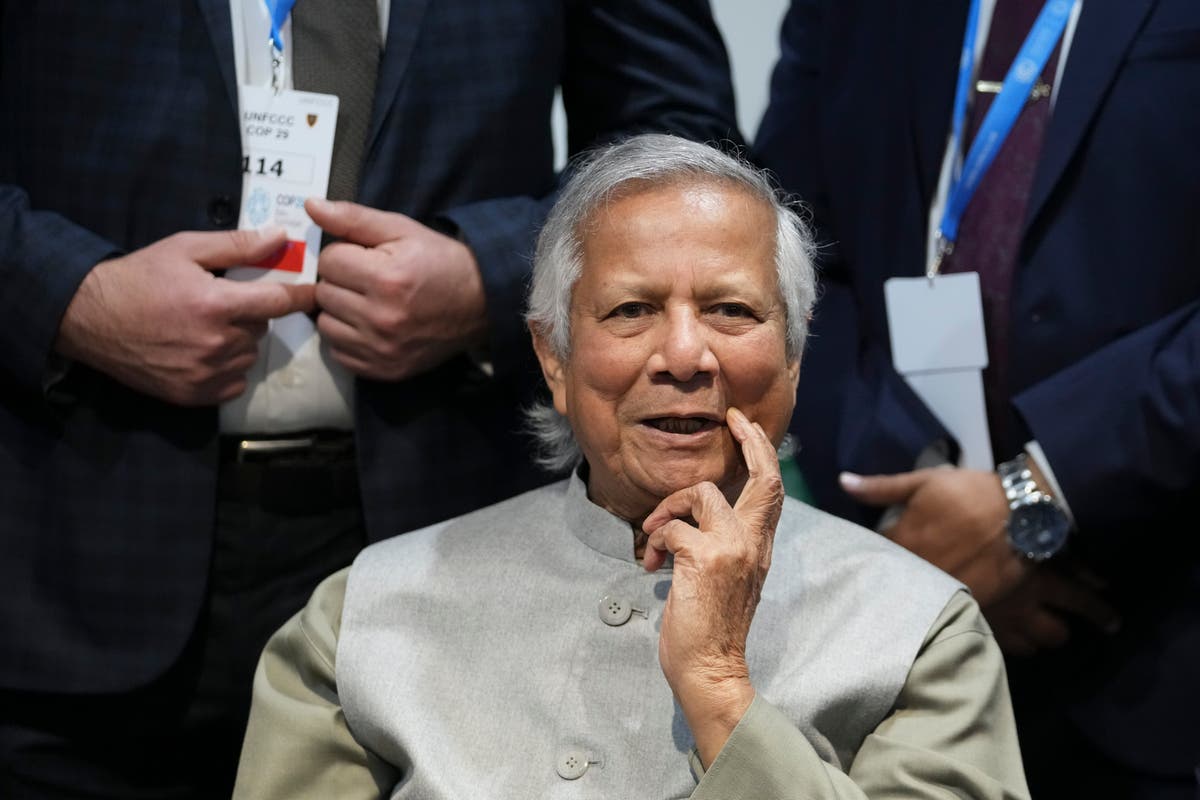
Bangladesh's leader says they will seek extradition of ex-premier Sheikh Hasina from India
The Independent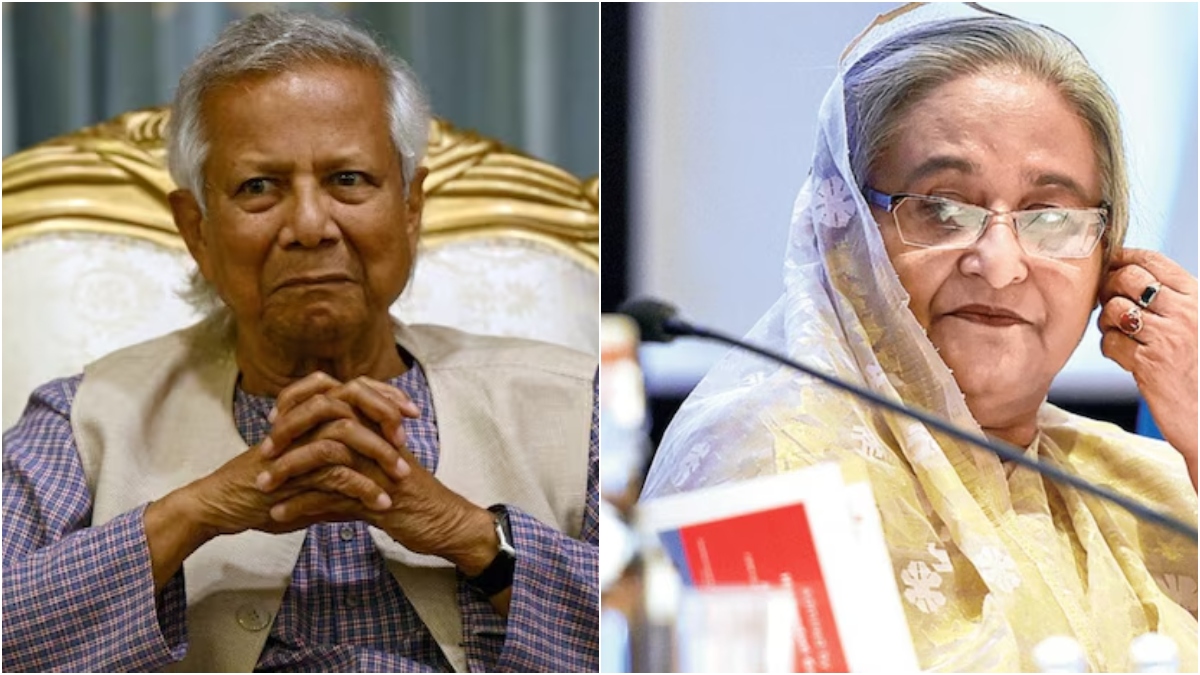
'We will seek Sheikh Hasina's extradition from India': Bangladesh's Muhammad Yunus on 100 days of interim govt
India TV News
We will seek Sheikh Hasina's extradition from India: Bangladesh's Muhammad Yunus
India Today
Sheikh Mujibur Rahman’s portrait removed from Bangladesh President’s office, casting doubt on future of his legacy
Live Mint
Mujibur Rahman's portrait removed from interim govt chief advisor Muhammad Yunus' office: Report
Hindustan Times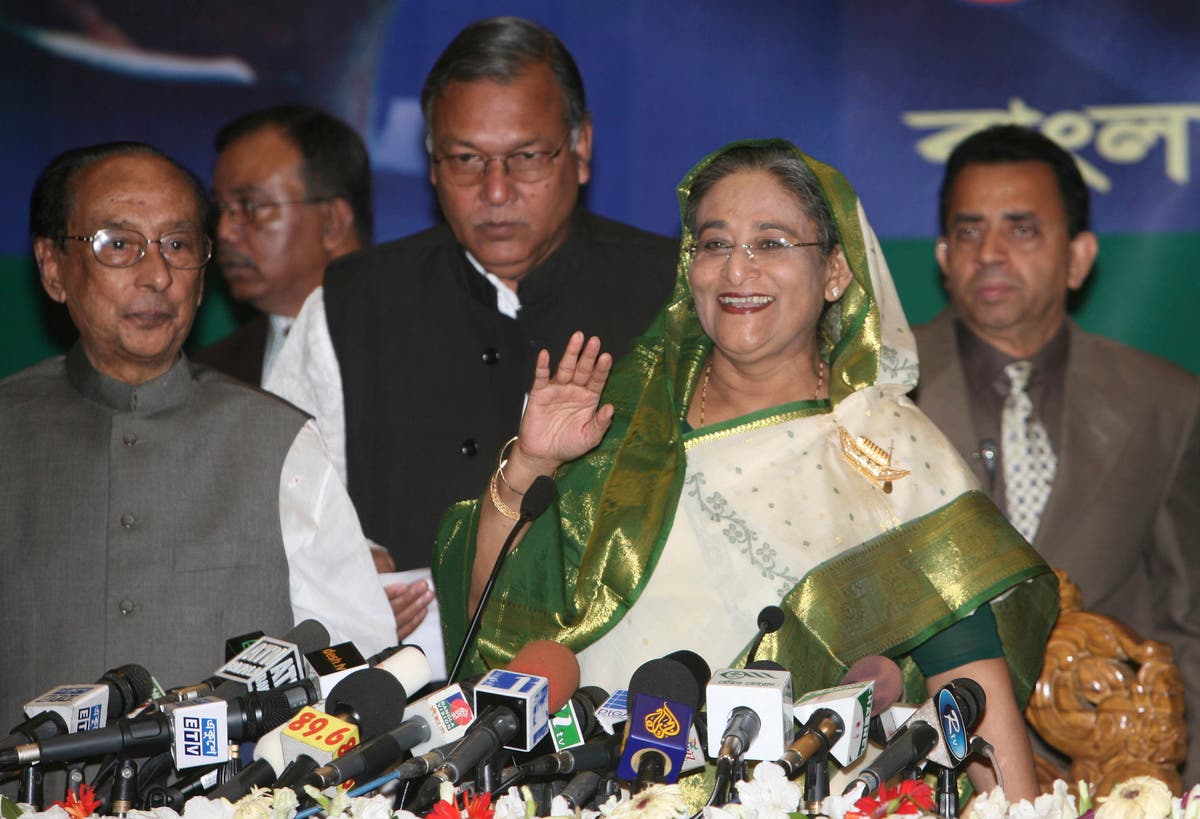
Bangladesh to request Interpol’s help to repatriate Sheikh Hasina from India
The Independent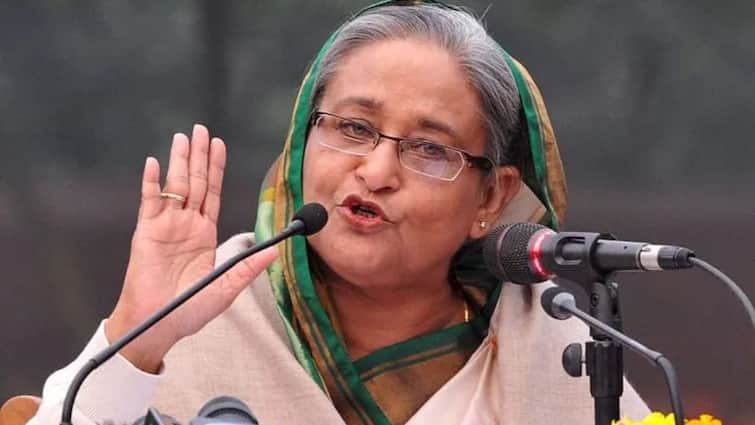
Bangladesh: Interpol Red Notice For Sheikh Hasina Soon, 'Fugitive Fascists' To Be Brought Back, Law Adviser Says
ABP NewsDiscover Related



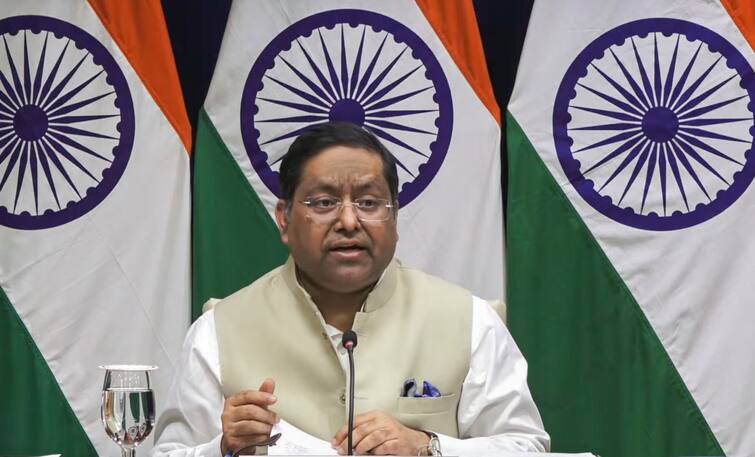

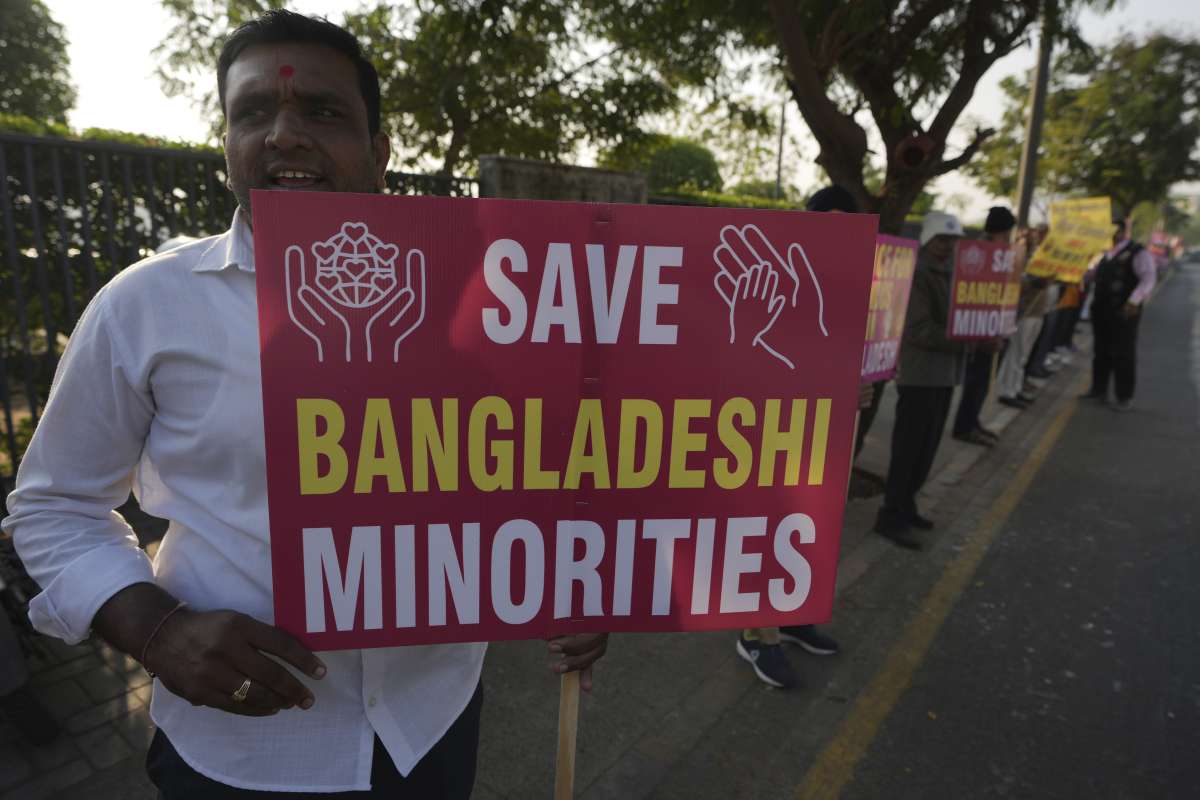


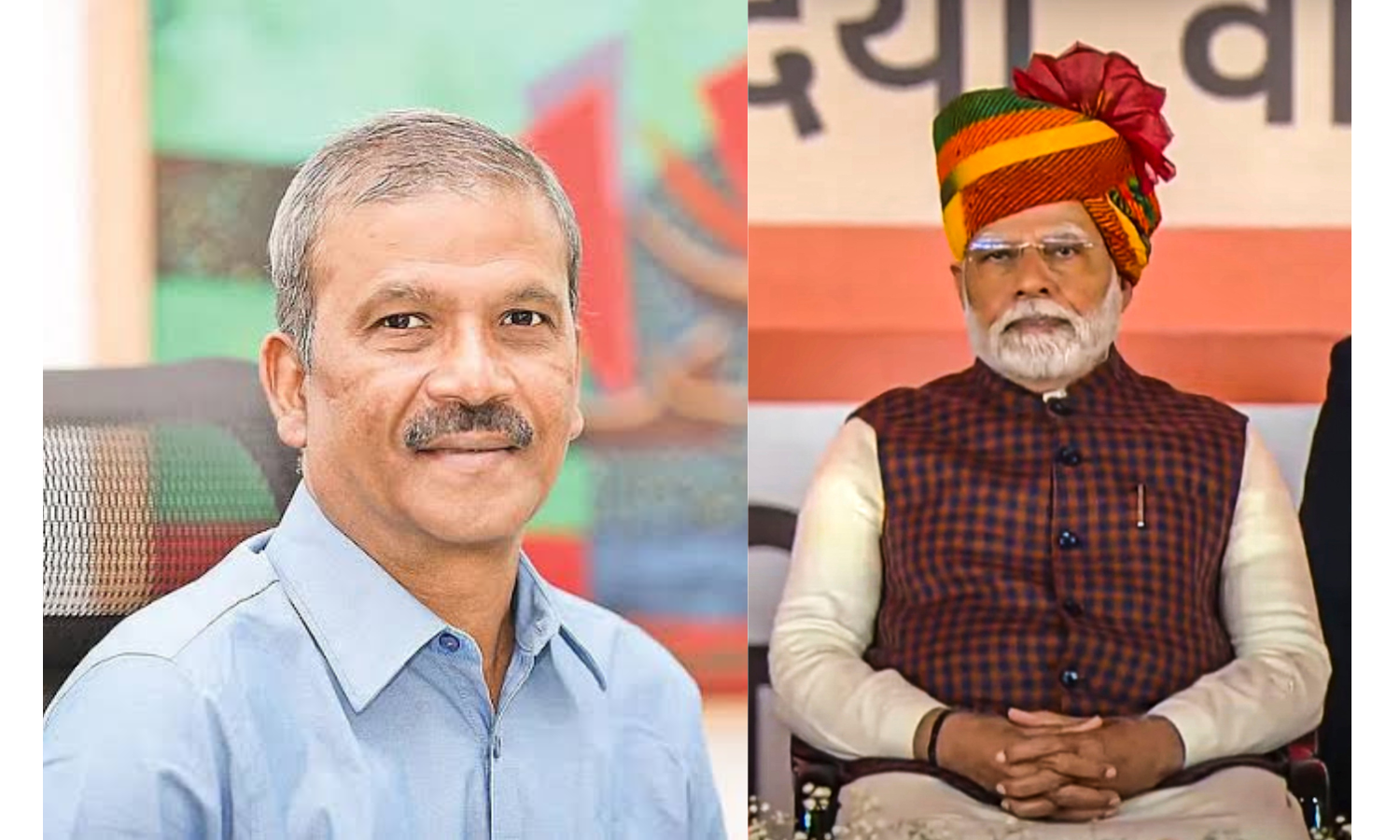

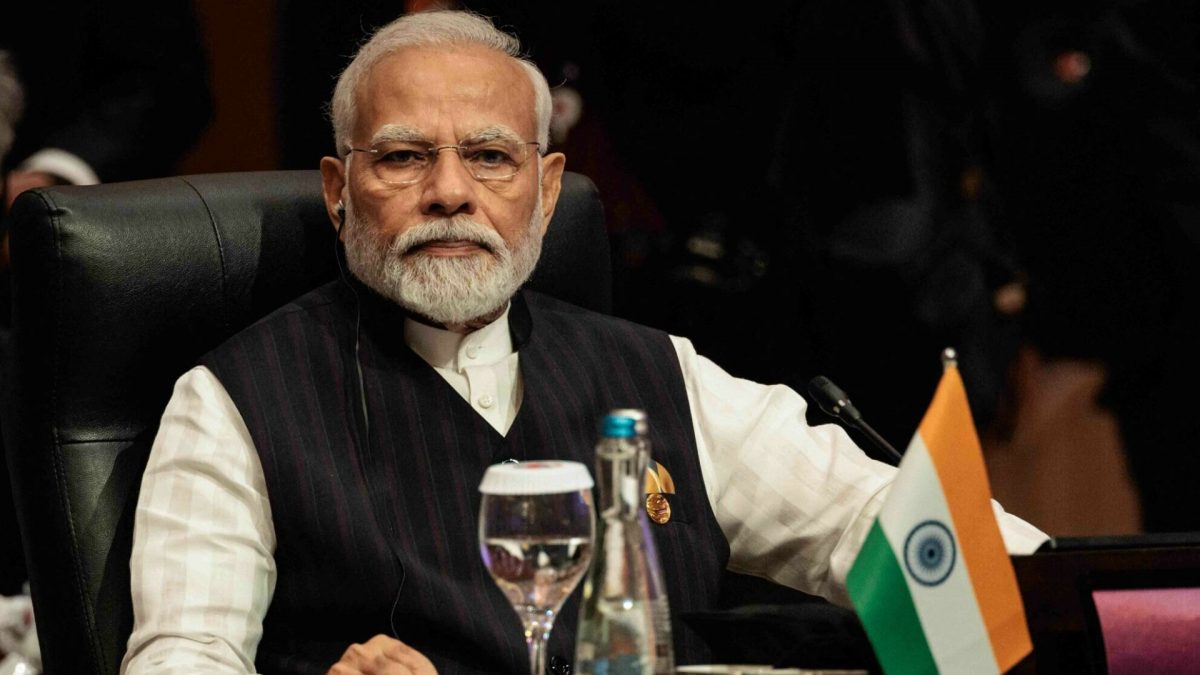)
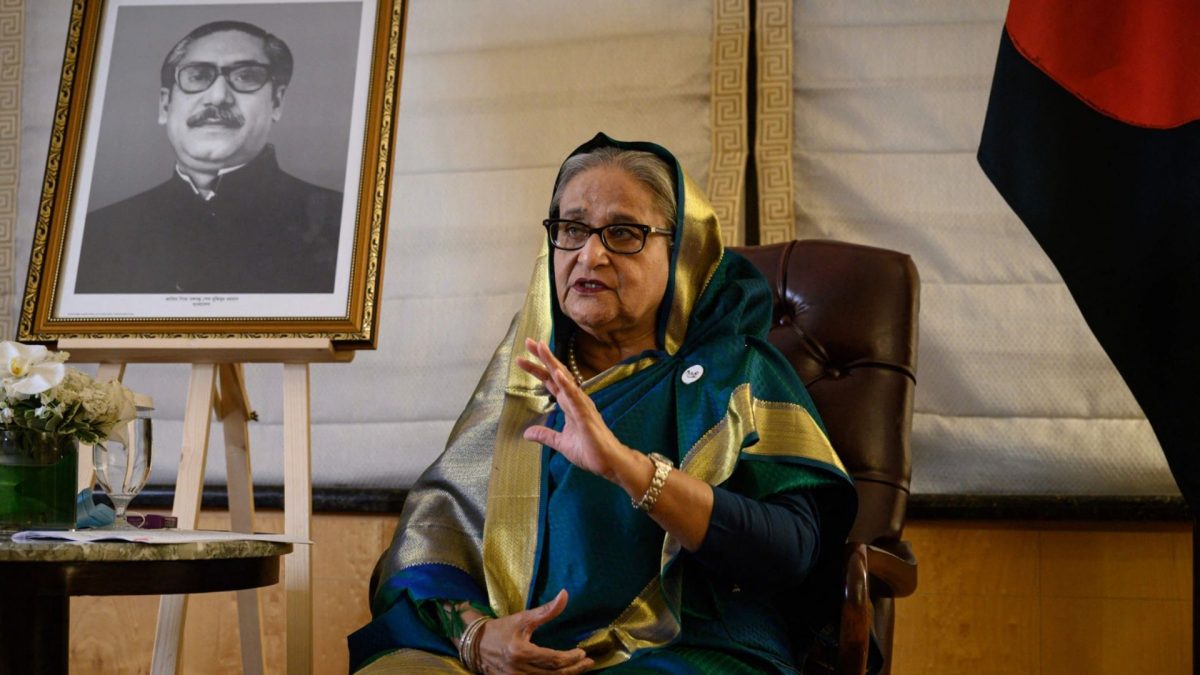)

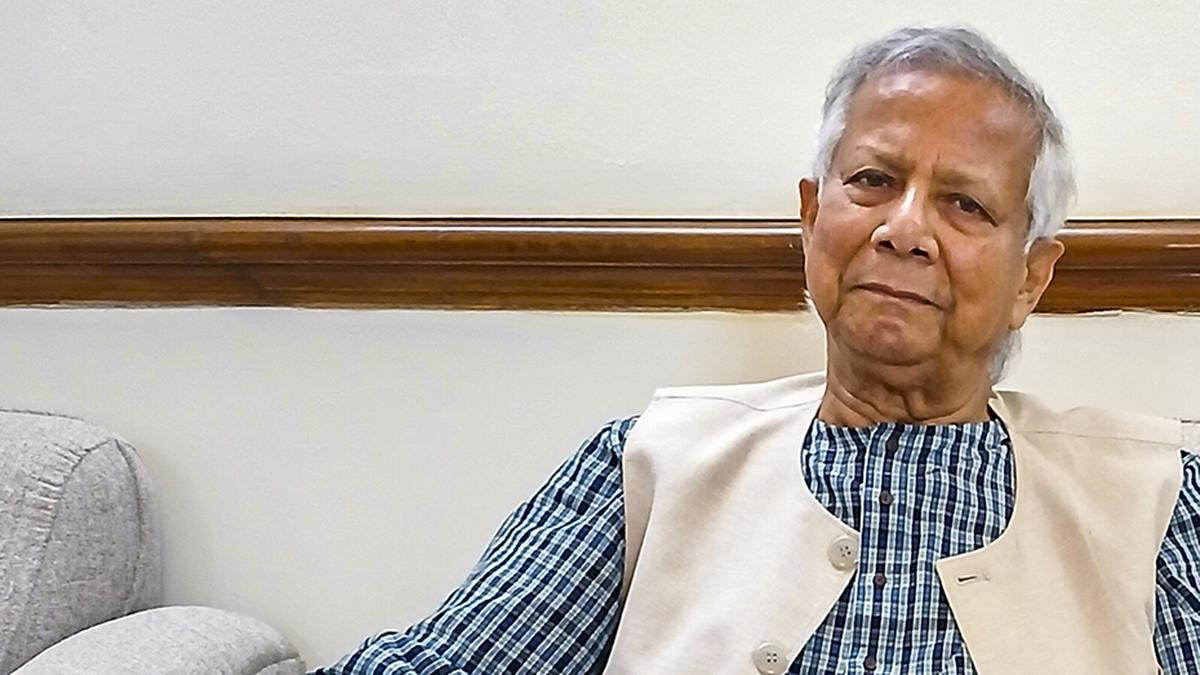
)

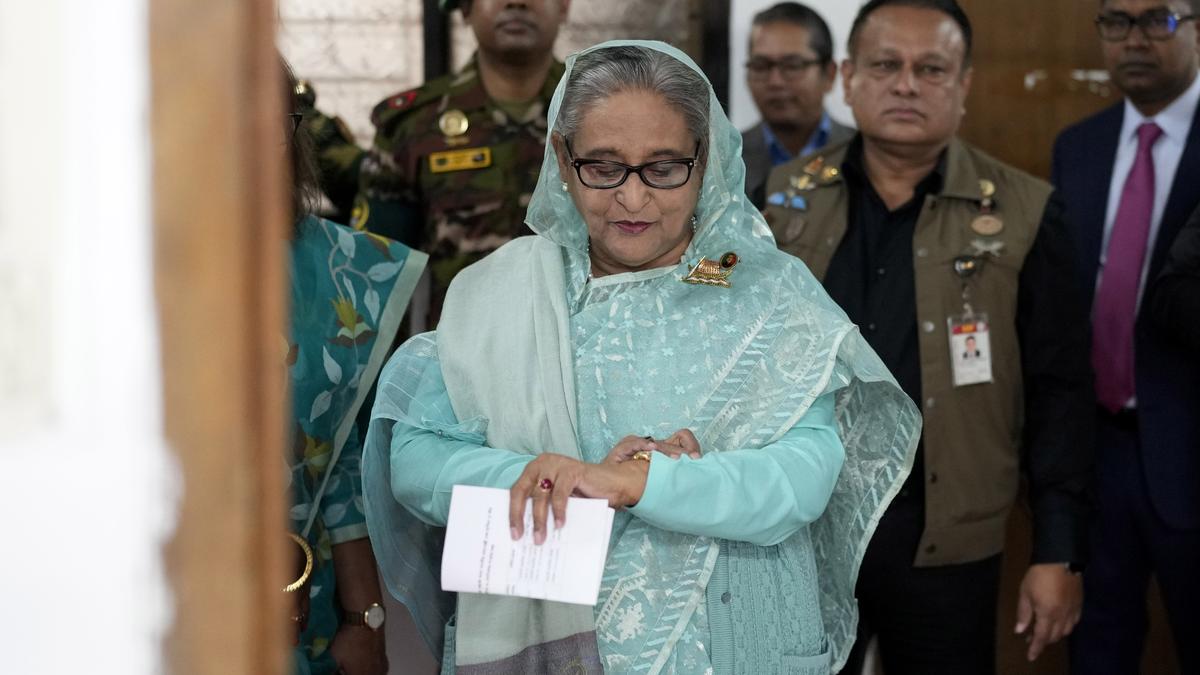


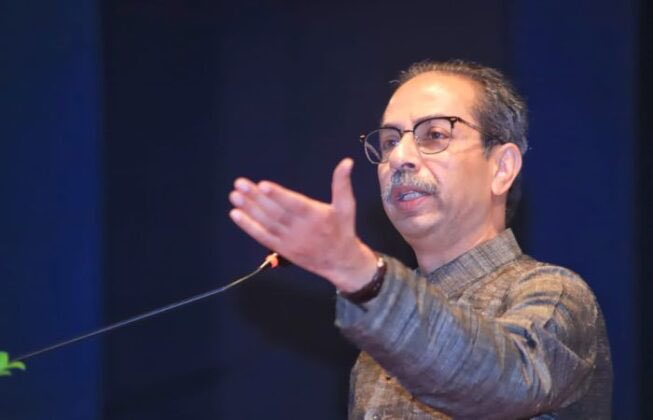
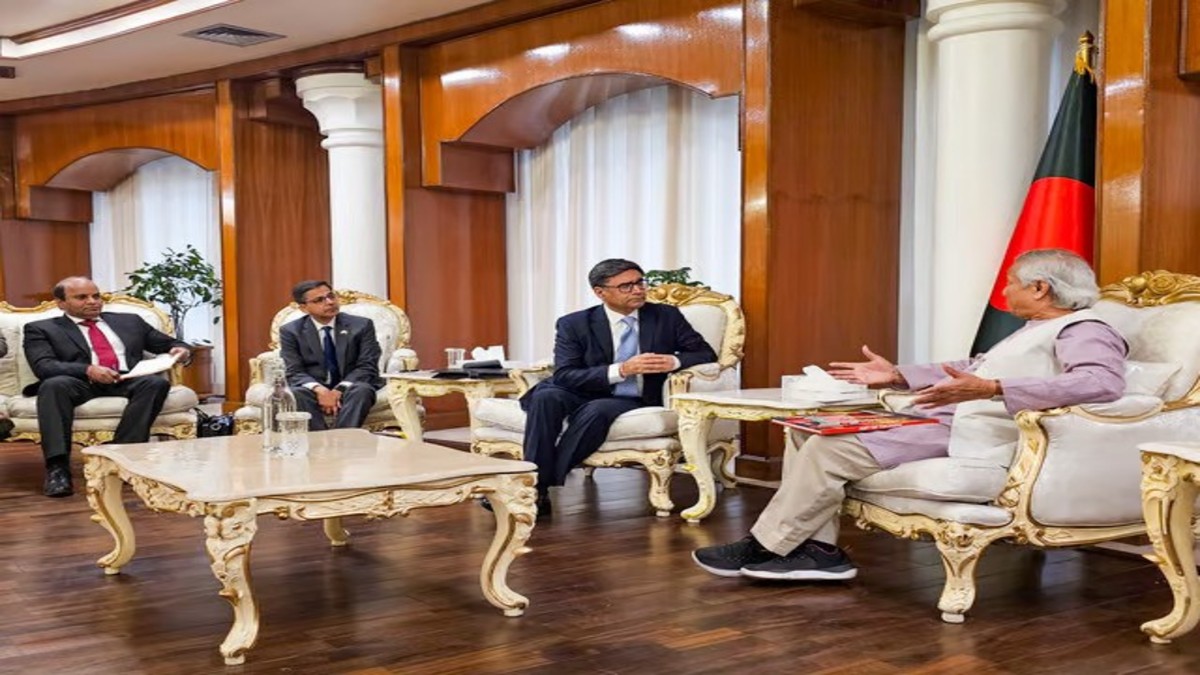)


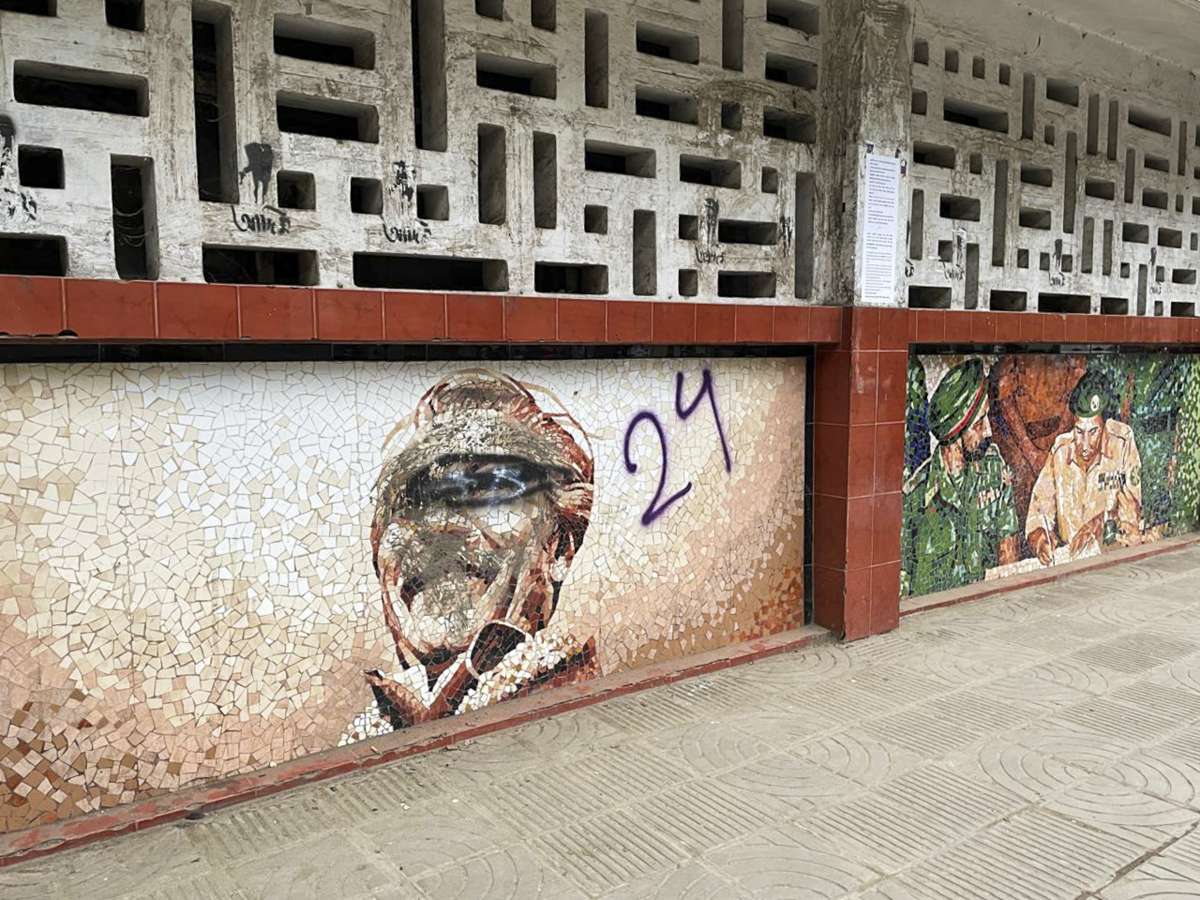
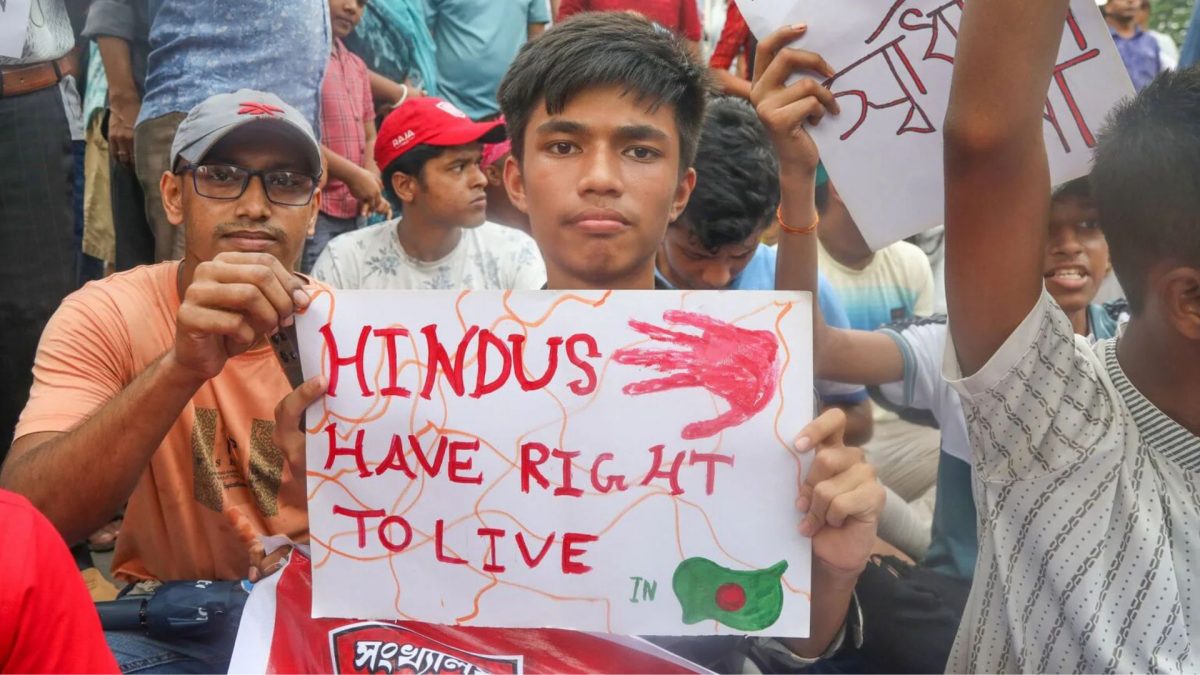)


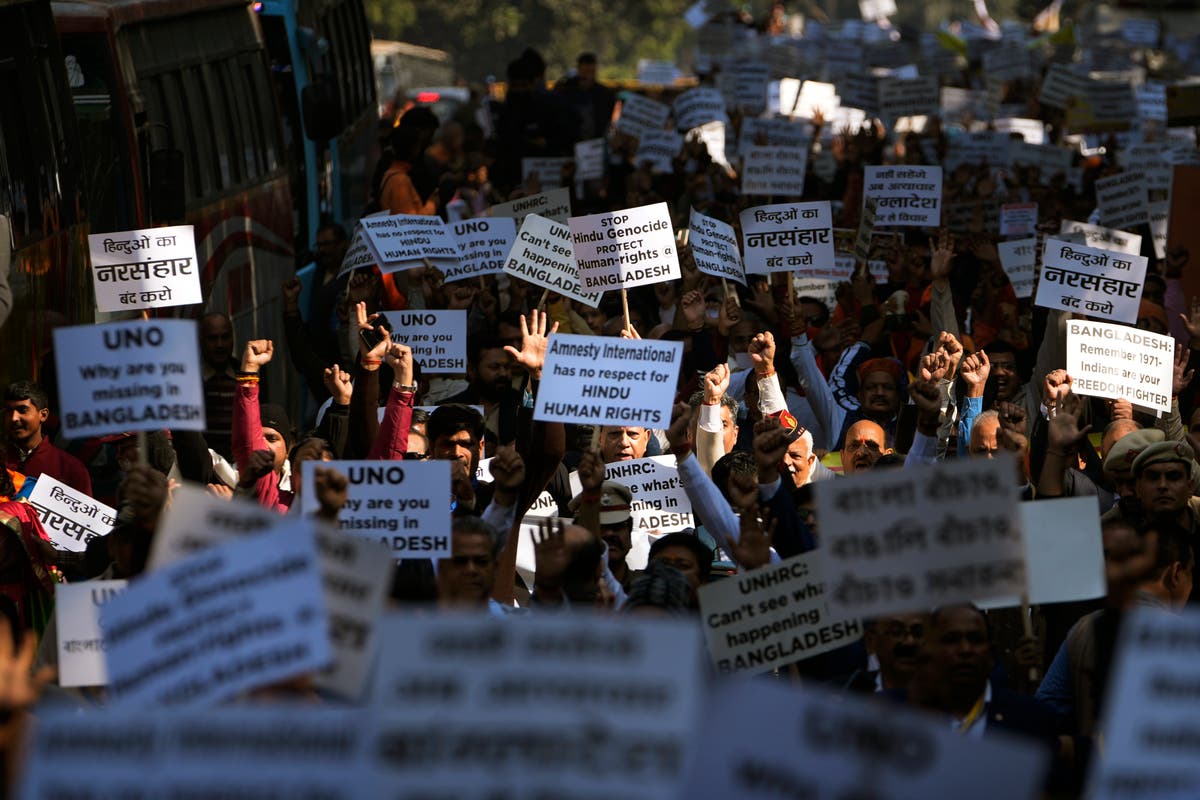
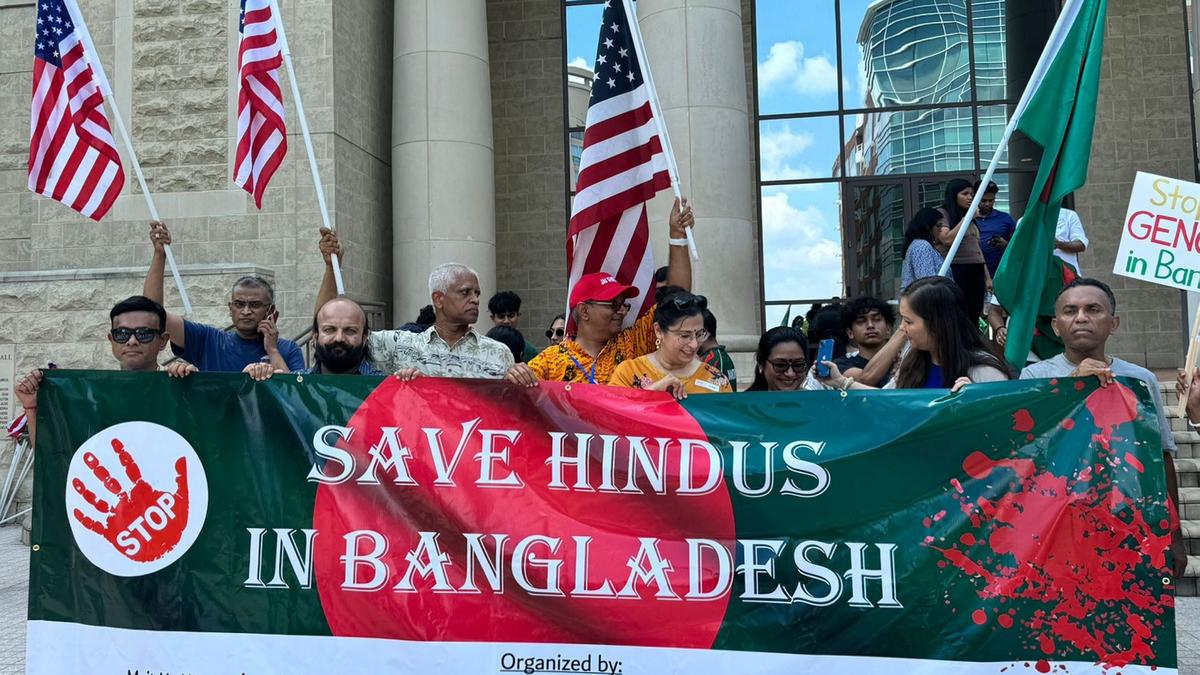


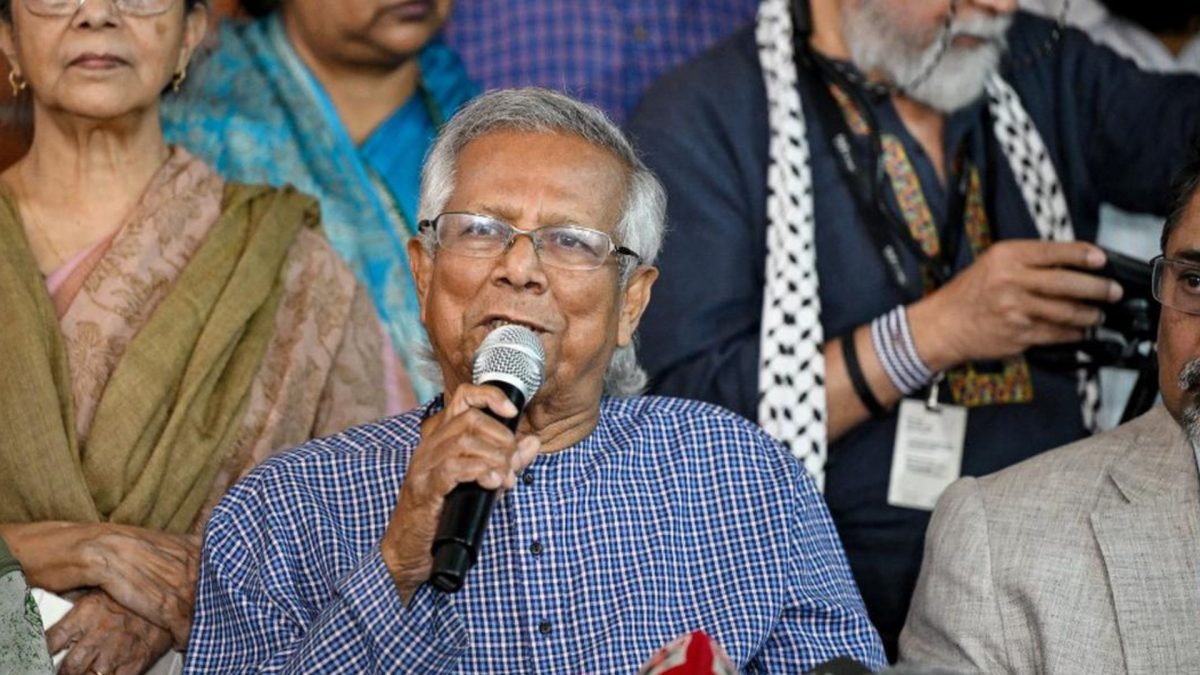)

